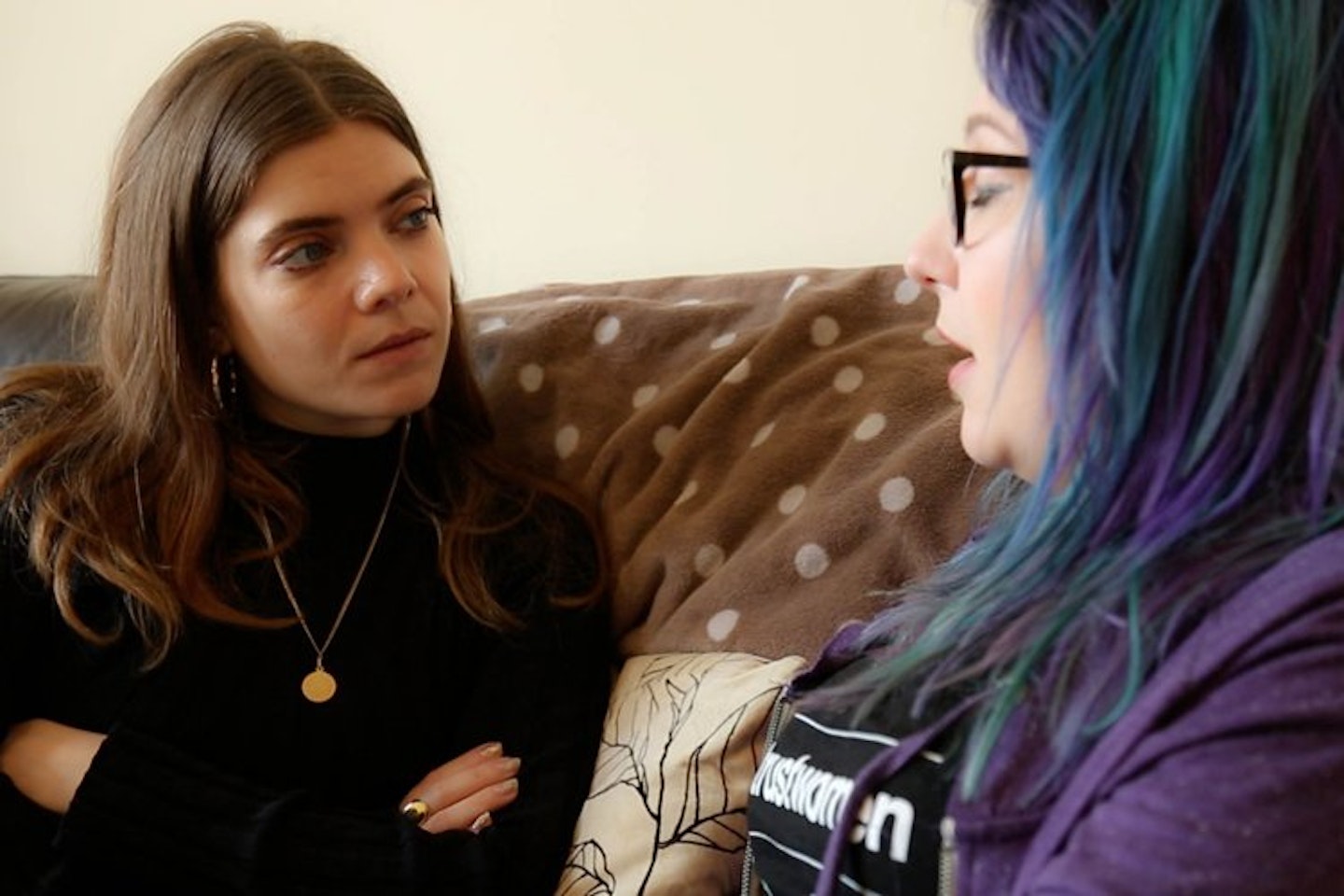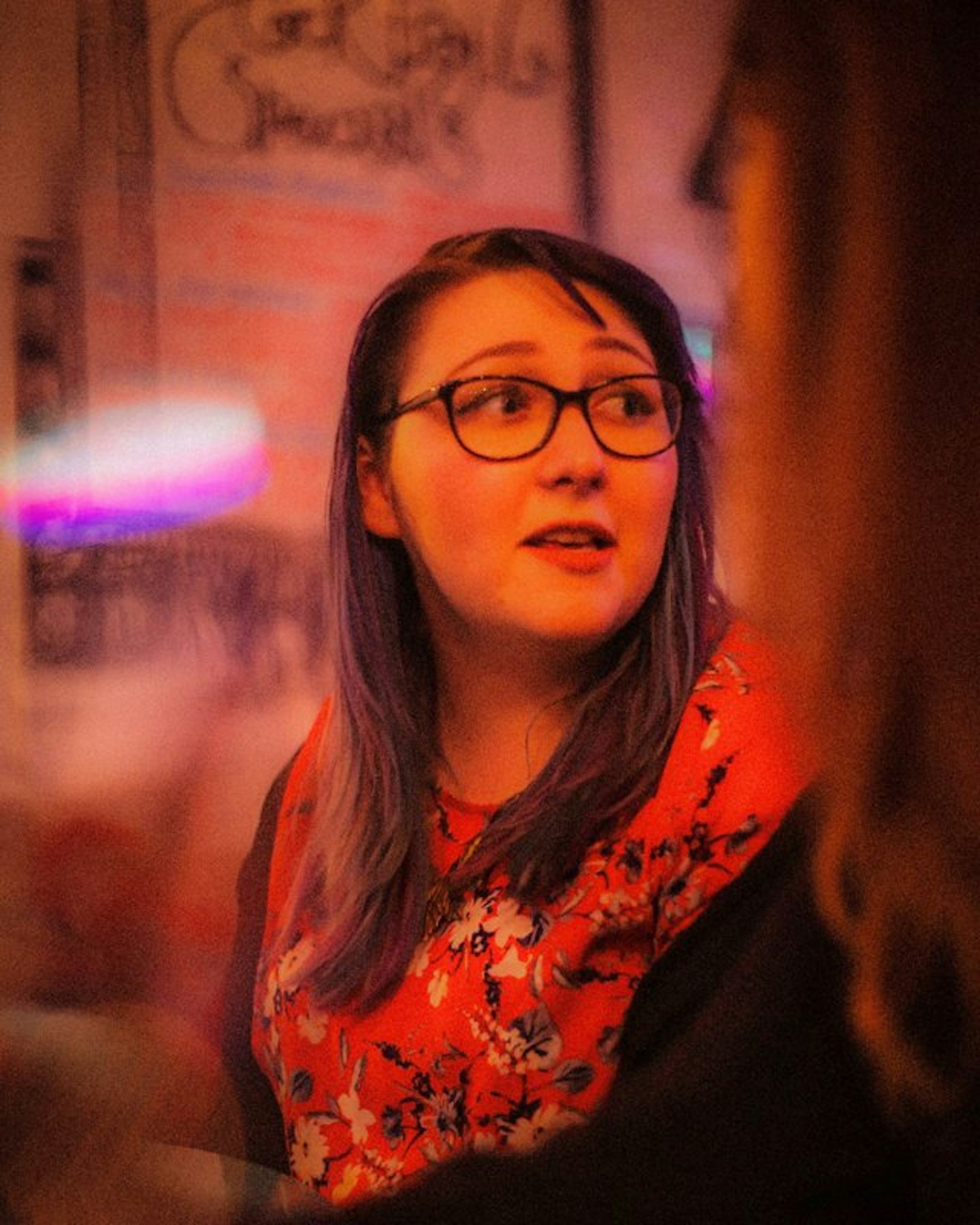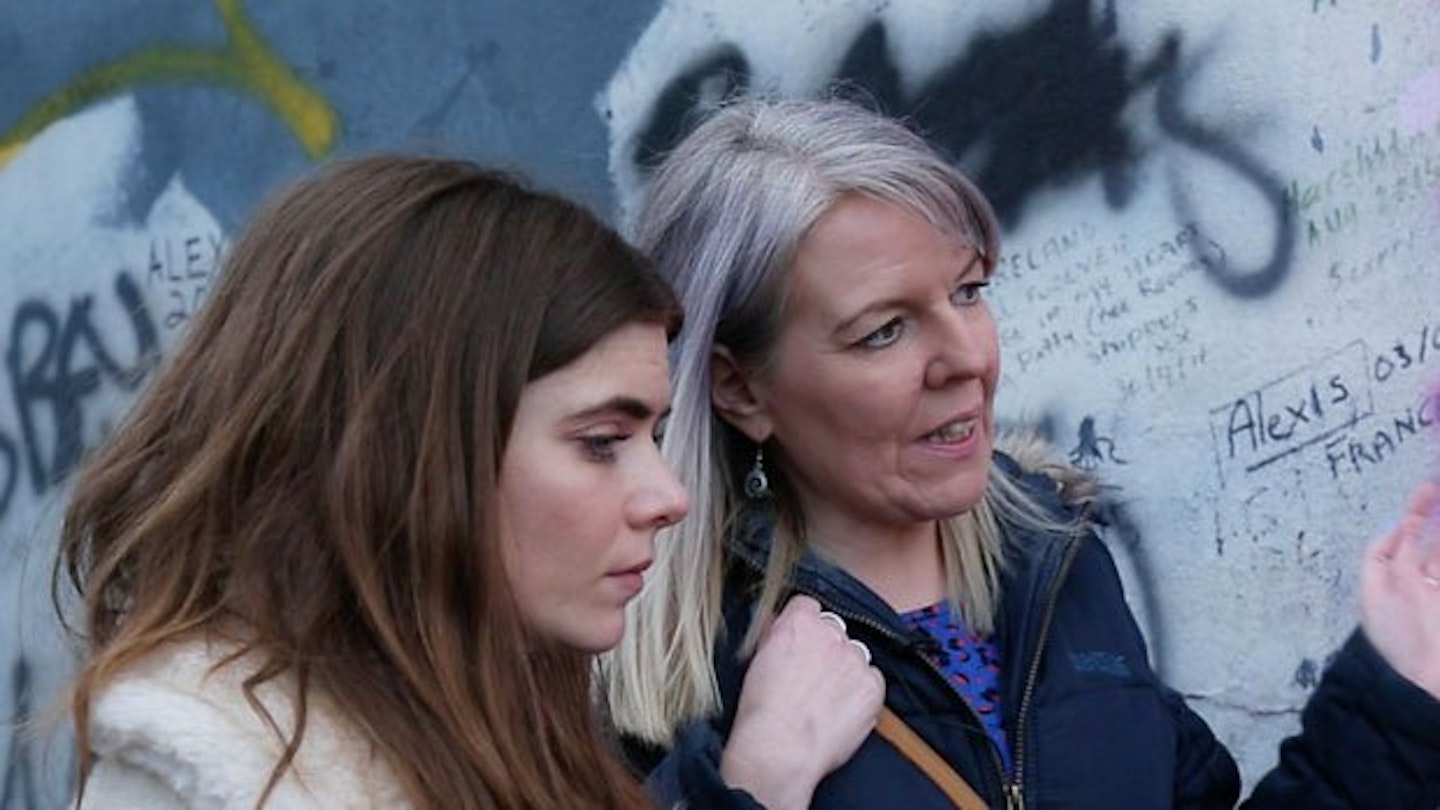‘I had a bad reaction to the medication’ Naomi tells me, recalling her journey back to Belfast after paying to have an abortion in England, ‘I was very unwell and had an allergic reaction to the anaesthetic’. It’s estimated that thousands of women make the journey from Northern Ireland to England, Scotland or, in some cases, even the Netherlands to access legal abortion services every year. The true figure is not known and up until very recently, when a potential alliance between Theresa May’s minority Conservative government and the Northern Irish DUP hit headlines, women like Naomi were making their clandestine journeys quietly, out of sight, while politicians and the majority of the public either turned a blind eye or, quite simply, didn’t know that this was going on in their own country.
It was after this emotional and physical journey which Naomi was forced to make as a result of the laws in her country in order to terminate a problematic pregnancy that she became an abortion rights campaigner and Marie Stopes escort. ‘The journey "activised" me’ she says, ‘everything was different after that’.
It goes without saying that the decision-making process that happens before having an abortion is as different for every woman as the many and manifold feeling she will experience after having one. Having made an early morning journey here, to Belfast, to meet Naomi I try to imagine how she must have felt before, during and after her circular journey away from home and back again. I cannot.
Official figures state that a total of 16 ‘legal’ abortions were performed in Northern Ireland in 2015/2016. They estimate that more than 700 women travelled to British clinics at a cost of up to £2,000 for terminations during the same period. Naomi estimates that the cost of her abortion journey ran into thousands. She used a credit card to pay for a substantial amount of it. In a perverse way, she tells me, she was one of the lucky ones. ‘I could afford to get into debt, not everyone can. Not everyone can take the time off work. Not everyone can pay for the flights in the first place, let alone the procedure. The law punishes poorer women, it criminalises them’. She means that those who cannot access funds to make the journey to England, or further afield, may take it upon themselves to order abortion pills online. These pills are safe, regarded by the World Health Organisation as some as the safest medication out there, but they are not legal. Amnesty International agrees that Northern Ireland’s abortion laws have a ‘disproportionately negative impact’ on women with low incomes.
Women who order abortion pills online face being prosecuted. Northern Ireland has the harshest criminal penalty for abortion anywhere in Europe. The theoretical maximum sentence is life imprisonment for both the women who has an unlawful abortion and anyone who helps her. Earlier this year, on International Women’s Day, the Police Service of Northern Ireland raided the premises of several women in a search for abortion pills. One of these women was pro-abortion campaigner Helen Crickard, her workspace where she makes woodwork to sell on her market stall was raided while she attended a talk by American activist and feminist, Angela Davis. The irony of the entire affair was not lost on her, ‘perhaps they did it then because they knew I’d be out’ she tells me as we stand in her wood-shaving covered workshop on a cold, rainy Belfast afternoon.

Helen shows me the search warrant, a flimsy carbon copy on pale yellow paper which must have been peeled off during the raid and left for her. It states that they were looking for ‘instruments which could be used to cause an abortion. Helen quips, ‘what did they think they were going to find? Knitting needles? Coat hangers?!?!’ In the face of injustice humour can be a useful tool, but for Helen this is no laughing matter. ‘When I was 16 I became pregnant’ she tells me, ‘looking back…I didn’t…it was more of a rape to be honest’. Now in her forties, Helen has a daughter, ‘I don’t want her to have to have these same conversations when she’s my age’, she says.
In 1967, when Helen was a toddler, the 1967 Abortion Act was passed. It gave women in England, Scotland and Wales the right to access free, safe and legal abortions through the NHS. The law was not extended to Northern Ireland, where a pregnancy can only be terminated under very restricted circumstances if there is a risk to a woman’s life or health. However, as both Naomi, Helen and Dr Fiona Bloomer from the University of Ulster tell me, many people, including politicians, don’t really understand how this law works or what it means.
Northern Ireland is the only part of the United Kingdom where abortion is illegal, it is also one of the few European countries which denies its female citizens the right to abortion. To put this legislative anomaly in context, the United Nations ruled that access to abortion is a basic human right back in 2005 after it was ordered that young woman from Peru be compensated after she was denied an abortion, despite being diagnosed as having a foetus with a fatal condition, in the country in 2001. The United Nations Human Rights Committee concluded that Peru had violated several articles of the International Covenant on Civil and Political Rights. This was the first time that a UN committee had held a country accountable for failing to ensure women access to safe and legal abortion.

In addition to this, the drugs contained in abortion pills used to induce a medical abortion, misoprostol and mifepristone, were added to the World Health Organization’s list of ‘essential medicines’ in 2008, yet they remain illegal in Northern Ireland with the exception of a very limited number of circumstances. Speaking earlier this year, following the raids on Helen and others, Det Supt Bobby Singleton of the PSNI said that abortion in Northern Ireland was a ‘sensitive issue that divides opinion within society’. However, a recent survey, conducted by University of Ulster researchers, found that an overwhelming majority of people in Northern Ireland believe abortion should be legalised. The in-depth look at public attitudes on abortion also found that many people were opposed to women being prosecuted for buying online abortion pills.
Despite an imminent referendum on abortion on the horizon south of the border in the Republic of Ireland, following a vote in favour ofunrestrictingaccess to abortion by the Citizen’s Assembly, abortion rights in Northern Ireland remain unchanged. Theresa May’s decision to form an alliance with the DUP has shone a light on the otherwise overlooked situation of Northern Ireland’s female citizens, triggering a cross-party group of MPs to table an amendment in Westminster on the subject.
Since 1967 some women in the UK have been denied access to free, safe and legal abortion by virtue of where they live alone, while others have been able to get the support and treatment they need. There’s no doubt that it’s high time this issue and the plight of the women affected by it received such attention. However, that does not change the fact that it took a bad general election result for Mrs May to shake up the status quo and put women’s rights in Northern Ireland on the agenda in Westminster.
Dr Bloomer is a lecturer in social policy at the University of Ulster. Underpinning all of this, she tells me, is a moralising approach to women’s bodies which goes against all of the medical evidence. This pervades politics, policy and public discourse to the extent that myths exist with regard to the after effects of abortion. In a paper delivered last year, she writes, for example, that ‘post abortion syndrome’ is commonly cited as a physiological after-effect of abortion. There is no scientific evidence to support this claim.
‘Two of the most common myths with regard to physical health consequences of abortion are that abortion increases a woman’s risk of developing breast cancer and that abortion decreases future fertility or ability to carry a pregnancy to full term’ Dr Bloomer’s paper continues. She then notes that this has been ‘robustly rejected’ by ‘a plethora of international health bodies’ from the WHO to the National Cancer Institute, the American College of Obstetricians and Gynaecologists and the Royal College of Obstetricians and Gynaecologists.
As the debate rages on between religion, reason and evidence, the women of Northern Ireland that I have met during my trip feel they have no choice but to continue to stand up for what they know to be right. As Emma Gallen, an activist in her early twenties who works in a call centre by day and campaigns in her spare time. She runs a pro-choice stall in the city-centre every Saturday tells me, ‘it makes me very angry that I could access abortion if I had grown up where you grew up. The only word for this is unfair’.
Emma, Helen and Naomi all tell me of their frustration at requests for interviews from major broadcaster like the BBC. ‘They want us to go up alongside so-called pro-lifers’ Helen tells me, ‘I tell them to get stuffed’. Naomi adds that she has no time for the ‘pro-life’ argument. ‘In my view, it’s not pro-life it’s just anti-women’. All three women find it galling that they are forced to defend their position when, elsewhere in the UK abortion is free, safe and legal without moral conditions based on a warped conception of what constitutes a ‘good’ or a ‘bad’ abortion. ‘One male BBC journalist from London told me that public opinion isn’t behind changing the law when he came to a march last year’ Emma tells me, ‘but that’s not what the polls say. I think he himself was anti-abortion’.
During my time in Belfast, I was asked several times by taxi drivers and passers-by what I was doing. I was hesitant about telling them, what sort of response would I get when I said I was ‘making a film about abortion rights’. Not once was the reaction negative, it was supportive and positive at best, indifferent at worst. The Debrief took the editorial decision not to speak to so-called ‘pro-life’ campaigners, throughout the rest of the United Kingdom abortion is legal so perhaps the question to be asked is not whether women in Northern Ireland should be able to access free, safe and legal abortion but why we are still debating women’s rights in Northern Ireland? In any case, the anti-abortion activists who stand outside Belfast’s Marie Stopes clinic whenever it is open, come rain or shine, would not speak to us when we approached them with a camera.
What is changing here is the culture of secrecy in which abortion is shrouded. For a long time, an out of sight, out of mind approach has shored up legislation which actively hurts women and keeps them quiet with the threat of criminal charge. By speaking out, these women are challenging and weakening that system, they are demanding the attention of both the public and politicians across the UK. In the words of Angela Davis, they are ‘no longer accepting the things’ they cannot change and ‘changing the things’ they ‘cannot accept.’
Until the law is changed in Northern Ireland, Helen will continue to defend the rights of women to put whatever they choose to in their bodies. Naomi will continue to support women accessing the limited services at Belfast’s Marie Stopes clinic, wearing her body cam to record the emotional abuse from anti-abortion protestors holding graphic posters showing unborn foetuses. Emma will continue to wear a ‘Trust Women’ t-shirt to work and turn up and set up her stall every Saturday. They will do this because they have no choice but to defend their right to choose what they do with their own bodies, to advocate on behalf of women across their country who cannot speak for themselves. Their only alternative would be to keep quiet, to remain silent. That isn’t an option.
You might also be interested in:
This Cross-Party Group Of MPs Wants Free Abortion Services For Northern Irish Women
'Arrest Me Or Change This Law' Says Young Woman From Northern Ireland
**Follow Vicky on Twitter @Victoria_Spratt **
This article originally appeared on The Debrief.
